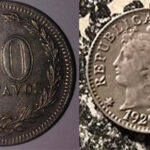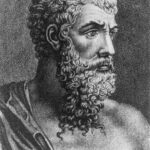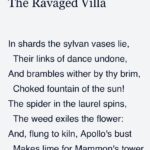At sunrise on a first of April, there appeared, suddenly as Manco Capac at the lake Titicaca, a man in cream-colors, at the water-side in the city of St. Louis.
Herman Melville’s final masterpiece The Confidence-Man: His Masquerade was published on April Fool’s Day, 1857. The novel opens with an invocation of Manco Cápac (aka Manco Inca aka Ayar Manco), the legendary first Inca and incarnation of the sun, who appeared as a mysterious stranger at Lake Titicaca in the Andes between present-day Peru and Bolivia, where he founded Cusco at the start of the 13th century. Given its position just below the confluence of the Mississippi and Missouri Rivers and its status as the largest city in the Mississippi valley, St. Louis was commonly seen as the symbolic crossroads to the West. Melville’s metaphoric deployment of Manco Cápac, who ruled for some 30-odd years, is one of many parallels drawn between Christ and the stranger aboard the Fidèle.
His cheek was fair, his chin downy, his hair flaxen, his hat a white fur one, with a long fleecy nap.
Melville describes his stranger in relation to birds (down), plants (flax), wild animals (fur) and tame ones (fleece). Again Melville sets up a Christ comparison, this time referencing Revelation 1:14 (in which Jesus’s “head and his hair were white like wool, as white as snow”) and even foreshadowing the apocalyptic turn the passage of the Fidèle will take. The relevant passage evokes a sense of purity, holiness, and perhaps even the “Ancient of Days” from Daniel 7:9, suggesting a divine, eternal presence.
He had neither trunk, valise, carpet-bag, nor parcel. No porter followed him. He was unaccompanied by friends. From the shrugged shoulders, titters, whispers, wonderings of the crowd, it was plain that he was, in the extremest sense of the word, a stranger.
Of course every character in this most beguiling of novels is a stranger, though only this first member of the traveling party is denoted as such “in the extremest sense of the word,” a superlative chosen for its derivation from extra, further denoting this particular stranger’s origin from outside; he is quickly established as a synecdoche for humanity, their gods, and the mystery and strangeness outside each individual.
In the same moment with his advent, he stepped aboard the favorite steamer Fidèle, on the point of starting for New Orleans.
Melville’s description of the stranger’s arrival as his “advent” is yet another choice of vocabulary freighted with outside associations; the word first came into English strictly in a religious context to describe Jesus’s coming, but Adventist prophecies gained widespread credence beginning with William Miller’s in 1843, just over a decade before the publication of The Confidence-Man. The same year Melville’s novel was released, the North Dutch Reformed Church in lower Manhattan hired Jeremiah Lanphier to lead the so-called “Businessman’s Revival,” kicking off a new wave of revivals across the US and effectively embodying the book’s themes concurrently with its publication.
More word association: the Fidèle‘s name (“Faithful”) comes from the Latin fides, “faith,” the same root which gives us “confidence.” The name also calls forth a tradition of disguise: in Shakespeare’s Cymbeline, Imogen, disguised as a boy, assumes the name Fidele. In both William Wycherley’s 1676 Restoration comedy The Plain Dealer and Beethoven’s only opera Fidelio, women in the same guise assume the name Fidelia and Fidelio, respectively.
(Of barely even apocryphal interest: on a publisher’s advertisement in his copy of William Hazlitt’s Criticisms on Art, Melville scribbled “The Plain Dealer as originally published.” Props to Steven Olsen-Smith and Peter Norberg at the exhaustive Melville’s Marginalia for documenting that little tidbit.)
Stared at, but unsaluted, with the air of one neither courting nor shunning regard, but evenly pursuing the path of duty, lead it through solitudes or cities, he held on his way along the lower deck until he chanced to come to a placard nigh the captain’s office, offering a reward for the capture of a mysterious impostor, supposed to have recently arrived from the East; quite an original genius in his vocation, as would appear, though wherein his originality consisted was not clearly given;
The American East or the Far East? Melville makes “original” something of a key word in his novel. It derives from oriri, “to rise,” the same root as “orient.” Chapter 19 calls the herb doctor “an original genius”; Chapter 36 joins “oriental” and “origin” together; all of Chapter 44 is devoted to a discussion of the phrase “Quite an Original.”
but what purported to be a careful description of his person followed.
Sinister syntax! The sentence opens by describing the stranger and ends by pointedly not repeating the “careful description” of “a mysterious impostor.”
As if it had been a theatre-bill, crowds were gathered about the announcement, and among them certain chevaliers, whose eyes, it was plain, were on the capitals, or, at least, earnestly seeking sight of them from behind intervening coats;
Chevaliers d’industrie live by their wits — in other words, sharpers and swindlers. The capitals they eye are those on the stranger’s placard (the letters), those in their midst (the heads of the gathered crowd) and those in their pockets (money, of course).
but as for their fingers, they were enveloped in some myth;
The word “myth” here suggests that any physical object may be a protective fiction or vice versa, an unusual usage implying in the world of the novel all objects may be mythic, that is, fictional, and all myths may be represented by objects.
The hidden hands of the chevaliers relate: the passengers in Chapter 10, most of whom have their “hands in the games” while a few “for the most part keep their hands in their pockets”; the personification of Yellow Fever in Chapter 23 as one whose “hand… has not lost its cunning”; and two cries from the dark in the final chapter — “…if you want to know what wisdom is, go find it under your blankets”; “To bed with ye, ye divils, and don’t be after burning your fingers with the likes of wisdom.”
though, during a chance interval, one of these chevaliers somewhat showed his hand in purchasing from another chevalier, ex-officio a peddler of money-belts, one of his popular safe-guards, while another peddler, who was still another versatile chevalier, hawked, in the thick of the throng, the lives of Measan, the bandit of Ohio…
Samueal Measan (or Mason) (c. 1750-1803), Revolutionary War veteran, frontier leader, justice of the peace and leader of a gang of bloodthirsty bandits on the Ohio and Mississippi Rivers. In The Outlaws of Cave-in-Rock : Historical Accounts of the Famous Highwaymen and River Pirates Who Operated in Pioneer Days upon the Ohio and Mississippi Rivers and over the old Natchez Trace, Otto A. Rothert collected reports of Mason: a man named William Darby claimed “Mason at any time of his life or in any situation, had something extremely ferocious in his look, which arose particularly from a tooth which projected forwards, and could only be covered with his lip by effort,” while another named Henry Howe called him “a man of gigantic stature and of more than ordinary talents”; conversely, another man named Swaney said “he weighed about two hundred pounds, and was a fine looking man. He was rather modest and unassuming, and had nothing of the raw-head-and-bloody-bones appearance which his character would indicate.”
…Murrel, the pirate of the Mississippi…
John A. Murrell (fl. 1804-1844), one of the bloodiest and most charming of all outlaws, sometimes known as the “Great Western Land Pirate” and head of Murrell’s Mystic Clan. The Clan, reputed to have over a thousand members, including some who were respected citizens by day, terrorized most of the Mississippi valley. Murrell and his men would ingratiate themselves with travelers, then murder them and throw their disemboweled bodies, filled with stones, into the river. One of Murrell’s favorite gambits was to steal a slave, resell, resteal, and finally murder him. See Chapter 3.
Murrell has something of a literary pedigree, appearing in Twain’s Tom Sawyer and Life on the Mississippi, Eudora Welty’s “A Still Moment,” Borges’s “The Cruel Redeemer Lazarus Morel,” Faulkner’s “The Courthouse,” Robert Lewis Taylor’s The Travels of Jamie McPheeters, Gary Jennings’s Sow the Seeds of Hemp, and Harry Harrison Kroll’s Rogue’s Company. Murrell was also portrayed by none other than Humphrey Bogart in the Michael Curtiz-directed Errol Flynn/Randolph Scott vehicle Virginia City.
…and the brothers Harpe, the Thugs of the Green River country, in Kentucky—
James Hall, the source for Chapters 26-28, describes the two fiendish Harpe brothers in these terms: “Neither avarice, want, nor any of the usual inducements to the commission of crime, seemed to govern their conduct. A savage thirst for blood — a deep rooted malignity against human nature, could alone be discovered in their actions. They murdered every defenceless being who fell in their way…” Like Murrell, they were masters of disguise. After Big Harpe was beheaded by a posse, Little Harpe joined Measan’s gang and eventually beheaded its leader. He was seized while trying to sell Measan’s head, and his own head, like his brother’s, ended on a public stake.
Thugs were devotees of Kali, Hindu goddess of destruction, consort of Siva the Destroyer. The term Thug means impostor or cheat. Bands of Thugs used to roam throughout India, posing as pilgrims, peddlers, or ordinary travelers, striking up acquaintances with authentic pilgrims or travelers and then ritually murdering them. The standard work, Edward Thornton’s Illustrations and Practices of the Thugs (London, 1837), related, pertinently, that “skilled in the arts of deception, they enter into the conversation, and insinuate themselves by obsequious attentions into the confidence of travelers of all descriptions,” that they were often aided by children who were becoming initiated into Thuggee, that they ran their own “clean and inviting” riverboats, and that they deemed it “a bad omen to meet… any person who has lost a limb.”
—creatures, with others of the sort, one and all exterminated at the time, and for the most part, like the hunted generations of wolves in the same regions, leaving comparatively few successors; which would seem cause for unalloyed gratulation, and is such to all except those who think that in new countries, where the wolves are killed off, the foxes increase.
Edwin Fussell suggests as a source Edmund Spenser’s The Shephearde’s Calendar, which in “September” features the following dialogue about the results of the royal order to destroy the wolves:
HOBBINOL: But the fewer wolves (the soth to sayne,)
The more bene the foxes that here remain.DIGGON DANE: Yes, but they gang in more secrete wise,
And with sheepes clothing doen hem disguise.
Immediately Melville refocuses on the “lamblike” stranger.
(More on this particular passage from Spenser in a few months, but suffice it to say Melville’s cribbing from big Ed was not limited to The Confidence-Man.)
Pausing at this spot, the stranger so far succeeded in threading his way, as at last to plant himself just beside the placard, when, producing a small slate and tracing some words upon if, he held it up before him on a level with the placard, so that they who read the one might read the other. The words were these:—
“Charity thinketh no evil.”
This and the following inscriptions on the slate come from I Corinthians 13.
As, in gaining his place, some little perseverance, not to say persistence, of a mildly inoffensive sort, had been unavoidable, it was not with the best relish that the crowd regarded his apparent intrusion; and upon a more attentive survey, perceiving no badge of authority about him, but rather something quite the contrary — he being of an aspect so singularly innocent; an aspect too, which they took to be somehow inappropriate to the time and place, and inclining to the notion that his writing was of much the same sort: in short, taking him for some strange kind of simpleton, harmless enough, would he keep to himself, but not wholly unobnoxious as an intruder — they made no scruple to jostle him aside; while one, less kind than the rest, or more of a wag, by an unobserved stroke, dexterously flattened down his fleecy hat upon his head.
It has been suggested that the crowd’s treatment of the lamb-like man constitutes a kind of crucifixion, and that this cruel joke has an analogue in the crown of thorns and sop of vinegar places on Christ’s head. Brand’s Popular Antiquities quotes a conjecture that “the custom of imposing upon and ridiculing people on the first of April may have an allusion to the mockery of the Saviour of the world by the Jews.”
Without readjusting it, the stranger quietly turned, and writing anew upon the slate, again held it up:—
“Charity suffereth long, and is kind.”
Illy pleased with his pertinacity, as they thought it, the crowd a second time thrust him aside, and not without epithets and some buffets, all of which were unresented. But, as if at last despairing of so difficult an adventure, wherein one, apparently a non-resistant, sought to impose his presence upon fighting characters, the stranger now moved slowly away, yet not before altering his writing to this:—
“Charity endureth all things.”
Shield-like bearing his slate before him, amid stares and jeers he moved slowly up and down, at his turning points again changing his inscription to—
“Charity believeth all things.”
and then—
“Charity never faileth.”
The word charity, as originally traced, remained throughout uneffaced, not unlike the left-hand numeral of a printed date, otherwise left for convenience in blank.
To some observers, the singularity, if not lunacy, of the stranger was heightened by his muteness, and, perhaps also, by the contrast to his proceedings afforded in the actions — quite in the wonted and sensible order of things — of the barber of the boat, whose quarters, under a smoking-saloon, and over against a bar-room, was next door but two to the captain’s office. As if the long, wide, covered deck, hereabouts built up on both sides with shop-like windowed spaces, were some Constantinople arcade or bazaar, where more than one trade is plied, this river barber, aproned and slippered, but rather crusty-looking for the moment, it may be from being newly out of bed, was throwing open his premises for the day, and suitably arranging the exterior. With business-like dispatch, having rattled down his shutters, and at a palm-tree angle set out in the iron fixture his little ornamental pole, and this without overmuch tenderness for the elbows and toes of the crowd, he concluded his operations by bidding people stand still more aside, when, jumping on a stool, he hung over his door, on the customary nail, a gaudy sort of illuminated pasteboard sign, skillfully executed by himself, gilt with the likeness of a razor elbowed in readiness to shave, and also, for the public benefit, with two words not unfrequently seen ashore gracing other shops besides barbers’:—
“No trust.”
An inscription which, though in a sense not less intrusive than the contrasted ones of the stranger, did not, as it seemed, provoke any corresponding derision or surprise, much less indignation; and still less, to all appearances, did it gain for the inscriber the repute of being a simpleton.
Meanwhile, he with the slate continued moving slowly up and down, not without causing some stares to change into jeers, and some jeers into pushes, and some pushes into punches; when suddenly, in one of his turns, he was hailed from behind by two porters carrying a large trunk; but as the summons, though loud, was without effect, they accidentally or otherwise swung their burden against him, nearly overthrowing him; when, by a quick start, a peculiar inarticulate moan, and a pathetic telegraphing of his fingers, he involuntarily betrayed that he was not alone dumb, but also deaf.
Presently, as if not wholly unaffected by his reception thus far, he went forward, seating himself in a retired spot on the forecastle, nigh the foot of a ladder there leading to a deck above, up and down which ladder some of the boatmen, in discharge of their duties, were occasionally going.
This image subtly suggests Jacob’s ladder to heaven, a suggestion which becomes explicit in the beginning of the next chapter. If the boatmen take the positions of the angels in Jacob’s vision, then the oft-mentioned yet never-seen captain takes God’s.
From his betaking himself to this humble quarter, it was evident that, as a deck-passenger, the stranger, simple though he seemed, was not entirely ignorant of his place, though his taking a deck-passage might have been partly for convenience; as, from his having no luggage, it was probable that his destination was one of the small wayside landings within a few hours’ sail. But, though he might not have a long way to go, yet he seemed already to have come from a very long distance.
Though neither soiled nor slovenly, his cream-colored suit had a tossed look, almost linty, as if, traveling night and day from some far country beyond the prairies, he had long been without the solace of a bed. His aspect was at once gentle and jaded, and, from the moment of seating himself, increasing in tired abstraction and dreaminess. Gradually overtaken by slumber, his flaxen head drooped, his whole lamb-like figure relaxed, and, half reclining against the ladder’s foot, lay motionless, as some sugar-snow in March, which, softly stealing down over night, with its white placidity startles the brown farmer peering out from his threshold at daybreak.
Much more to say on Melville and his extremely bizarre final novel but I’ll cut myself off at Chapter 1 for now. But have confidence and watch this space…
Image: Charles White, Mississippi (1972)




Leave a Reply